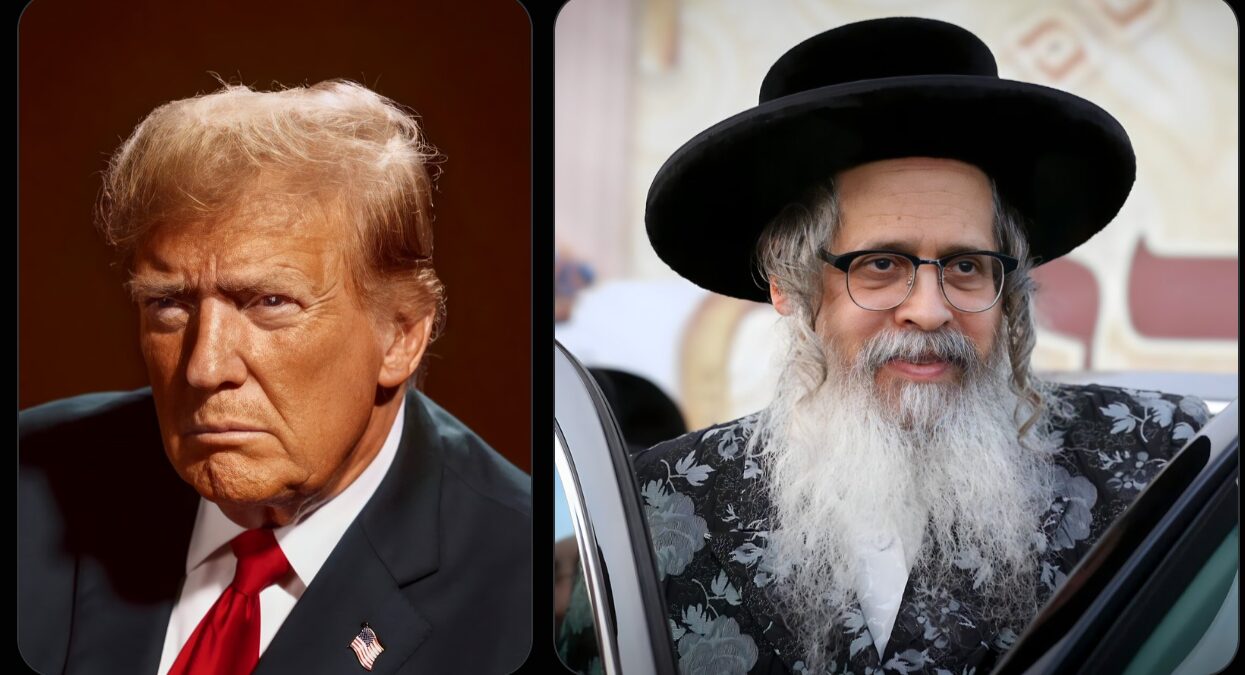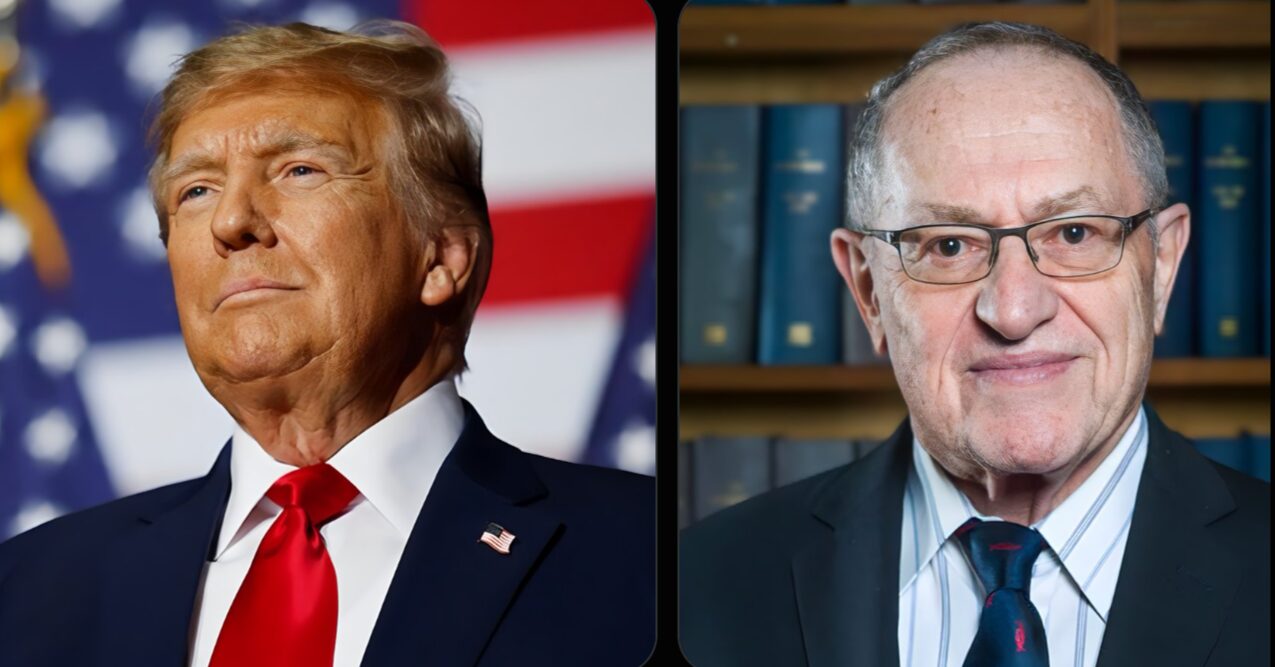TRUMP has invited ANTI-ZIONIST Rabbi Aaron Teitelbaum to the White House
In a surprising and politically charged development, former U.S. President Donald Trump has extended an invitation to Rabbi Aaron Teitelbaum, a prominent anti-Zionist Jewish leader, to visit the White House. Rabbi Teitelbaum, the Satmar Rebbe, is known for his staunch opposition to Zionism, the political movement that supports the establishment of a Jewish state in Israel. This invitation has sparked widespread discussion, both in the Jewish community and among political observers, raising questions about the implications of such a move.
Who is Rabbi Aaron Teitelbaum?
Rabbi Aaron Teitelbaum is a leading figure within the Satmar Hasidic community, one of the largest and most influential groups of ultra-Orthodox Jews. The Satmar movement is distinct for its strong opposition to Zionism and the modern state of Israel. This opposition stems from religious beliefs that the establishment of a Jewish state before the arrival of the Messiah is contrary to Jewish law, as articulated by the Satmar founder, Rabbi Joel Teitelbaum, Aaron Teitelbaum’s late father. The Satmar community is known for its commitment to preserving traditional Jewish practices and its reluctance to engage in secular politics.
Rabbi Aaron Teitelbaum has been a vocal critic of Zionism and has condemned the actions of the Israeli government, particularly in relation to its treatment of Palestinians. Despite his views, he remains a respected leader within his community, which includes tens of thousands of followers worldwide, particularly in New York and the United States. The invitation from Trump has put Teitelbaum’s views back in the spotlight, leading to intense debates about the relationship between American politics and the broader Jewish community.
The Zionist-Anti-Zionist Divide
The controversy surrounding Trump’s invitation to Rabbi Teitelbaum highlights the deep divide within the Jewish community over Zionism and the state of Israel. While Zionism is widely supported by many Jews worldwide, especially in Israel and the United States, there is a vocal minority of Jews who oppose it on theological and political grounds. These anti-Zionist Jews argue that the establishment of a Jewish state before the coming of the Messiah violates religious doctrine.
In recent years, the debate over Zionism has become more pronounced, especially in the context of the Israeli-Palestinian conflict. Many critics of Israeli policies, particularly in the United States, have aligned themselves with anti-Zionist Jewish groups, advocating for the rights of Palestinians and calling for a reevaluation of U.S. foreign policy toward Israel. Rabbi Teitelbaum’s anti-Zionist stance places him in direct opposition to the prevailing pro-Israel sentiment in American politics, particularly among conservative circles that have historically been strong supporters of the Israeli state.
Why Did Trump Invite Rabbi Teitelbaum?
Donald Trump’s decision to invite Rabbi Aaron Teitelbaum to the White House is a complex and strategic move that reflects both his ongoing outreach to different segments of the Jewish community and his efforts to maintain strong political alliances. Trump’s relationship with the Jewish community has been a mixed one, with his administration making significant strides in supporting Israel, such as recognizing Jerusalem as the capital of Israel and moving the U.S. embassy there.
However, Trump has also faced criticism from some Jewish groups for his controversial statements and actions, particularly in relation to issues of anti-Semitism. By inviting Rabbi Teitelbaum, Trump may be seeking to appeal to a different segment of the Jewish population, one that is more skeptical of Zionism and its role in U.S. foreign policy. This could be seen as an attempt to broaden his base of support and show that he is inclusive of diverse Jewish viewpoints.
Moreover, the invitation could serve as a gesture of support for the ultra-Orthodox Jewish community, which has long been a significant political force within the U.S. This community has been a key part of Trump’s base, particularly among religious conservatives who prioritize traditional values and have strong concerns about the role of religion in public life. By engaging with Rabbi Teitelbaum, Trump may be signaling his commitment to the concerns of ultra-Orthodox Jews, who often feel that their values are underrepresented in mainstream political discourse.
Reactions to the Invitation
The invitation to Rabbi Teitelbaum has drawn mixed reactions from both political and religious leaders. Proponents of the invitation argue that it reflects a commitment to religious diversity and a willingness to engage with different perspectives within the Jewish community. Some have praised Trump for acknowledging the complexity of Jewish thought and respecting the views of anti-Zionist Jews who feel marginalized by the mainstream political establishment.
On the other hand, critics have raised concerns about the implications of inviting a vocal anti-Zionist figure to the White House. Some argue that the invitation could alienate Trump’s pro-Israel supporters, particularly those within the evangelical Christian community, who have been some of his most ardent backers. For these groups, Trump’s unwavering support for Israel has been a cornerstone of his foreign policy, and any association with anti-Zionist figures could undermine his credibility on this issue.
Additionally, some Jewish leaders have expressed discomfort with Rabbi Teitelbaum’s views, particularly his strong condemnation of the Israeli state and his stance on the Palestinian issue. Critics argue that by inviting such a figure to the White House, Trump risks sending the message that he is aligning himself with voices that oppose the Jewish state and its right to exist.
The Political Implications
Trump’s invitation to Rabbi Teitelbaum also has broader political implications. The American Jewish community is often seen as a key voting bloc, with its members playing important roles in both Democratic and Republican political spheres. In recent years, there has been a growing shift within the Jewish community, with some segments becoming more critical of Israel’s policies, particularly under Prime Minister Benjamin Netanyahu’s leadership.
By engaging with Rabbi Teitelbaum, Trump may be seeking to tap into this growing dissatisfaction with Zionism and Israel’s political direction. His move could signal a broader shift in American politics, where the traditionally strong support for Israel is increasingly being questioned, particularly among younger voters and progressive circles. This could have significant ramifications for future U.S. elections, as the debate over Israel and Palestine continues to evolve.
In Conclusion
The invitation extended by Donald Trump to Rabbi Aaron Teitelbaum is a bold and controversial move that highlights the complexities of U.S. politics, the American Jewish community, and the broader Israeli-Palestinian conflict. By engaging with an anti-Zionist figure, Trump is sending a message that he is willing to listen to diverse viewpoints within the Jewish community, even as he continues to maintain strong ties with pro-Israel factions.
However, the invitation also raises questions about the potential political fallout, particularly with Trump’s pro-Israel base and the broader public. As the situation unfolds, it will be fascinating to see how this invitation shapes future political discourse and the ongoing debate over Israel’s role in American foreign policy.

















Post Comment